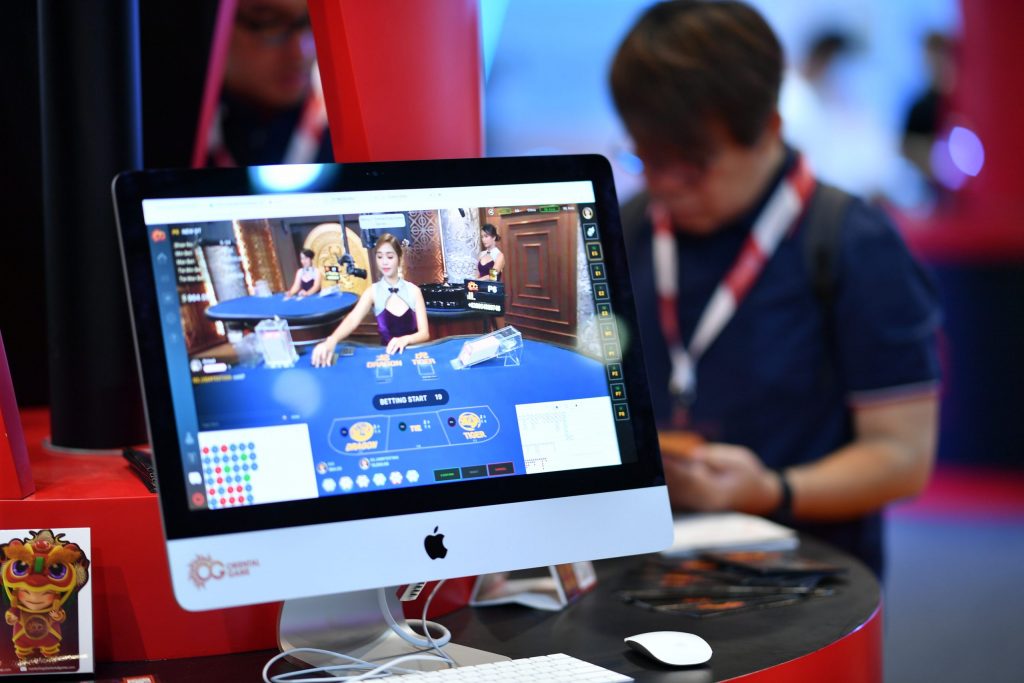Why the special treatment for POGOs?

WHEN THE government declared the enhanced community quarantine (ECQ) for Metro Manila and the rest of Luzon, many businesses including the Philippine Offshore Gaming Operations (POGO), were forced to suspend activities. Apparently, however, the proponents of POGOs won’t let those enterprises sit idly for long. And as it have turned out, they have the sponsors in high places they need for its the early resumption.
In April, two documents called for the resumption of POGO operations: a statement from Rep. Eric Yap and a letter by the Philippine Amusement and Gaming Corporation (PAGCOR) to President Rodrigo Duterte. Both argued that POGOs help boost the budget for the fight against COVID-19. But in his briefing on April 26, Presidential Spokesperson Harry Roque said POGOs will not be allowed to operate because they are a non-essential industry.
Three days later, on May 1, Roque changed his tune. He said POGOs may resume partial operations under certain conditions. He also argued that POGOs may be classified as business process outsourcing (BPO) firms and are thus allowed to operate under the ECQ. A separate announcement by PAGCOR chairperson Andrea Domingo on the same day also made the same claim.
The turnaround was no surprise. In the wake of a Senate investigation on POGOs in early March, media reports noted that Duterte himself has repeatedly downplayed the supposed links of POGOs to illegal activities.
Lawmakers, along with some concerned groups, readily expressed disapproval of this accommodation. Some senators and congressmen warned against the health risks posed by allowing POGOs to resume operations. Meanwhile, the Information Technology and Business Process Association of the Philippines (IBPAP), an association of IT and business process management firms in the country, denounced the government’s claim that POGOs may also be considered as BPOs.
Media reports noted the president’s partiality toward the industry despite rising criticism of its bad practices. News reports recalled complaints about the failure to pay taxes of some of these companies, as well as the involvement of Chinese nationals, some employed by POGOs, in kidnapping, bribery, prostitution and money laundering.
Unfortunately, with only a few exceptions, most of the media reports merely quoted the statements of government officials on the matter. Media did not refer to the long-standing issues raised about depending on gambling revenues, or to the need for strong regulatory oversight of government over its government-run casinos.
CMFR monitored reports from the three Manila broadsheets (Manila Bulletin, Philippine Daily Inquirer and The Philippine Star); primetime newscasts (ABS-CBN 2’s TV Patrol, CNN Philippines’ News Night, GMA-7’s 24 Oras and TV5’s One News Now); as well as selected news websites from May 1 to 10, 2020.
No deep dive
Media’s attention seemed perfunctory for something that actually riles many concerned citizens. Most reports picked up the topic only when government talking heads made announcements or statements.
In TV news, the subject dropped out of the news agenda as soon as the announcement of the POGO’s partial resumption was reported on May 1. There were only a few follow-ups until May 4. No other relevant reports appeared until the end of the monitor period.
Succeeding reports in print and online provided incremental updates on the subject, but the discourse failed to go beyond the usual who said what.
The decision of government to consider the business as a BPO deserves further probing, since that claim in effect modifies the nature of the business. An article could have focused on the nature of the BPOs compared to online gambling. Reporters did not ask any official to justify the reclassification, which seemed so obviously meant to allow the POGOs to operate even during the ECQ.
Media also failed to follow up on a number obvious leads. For example, the POGOs have never registered as BPOs. The IBPAP issued a statement that refuted the classification of the POGO as a BPO. Reporters could have interviewed the leaders of the association and other businesses so the public could better understand this issue, but they did not.
Sen. Franklin Drilon and the IBPAP pointed out that BPOs are registered with the Philippine Economic Zone Authority (PEZA) or the Board of Investments (BOI), while POGOs are under PAGCOR. Drilon stressed that since that is the case, it is clear that POGOs are gambling operations, an Inquirer report noted. In addition, the Star reported PEZA’s clarification that POGOs are not considered or counted as BPOs and are therefore not allowed to register with the agency. Both the Inquirer and Star picked up the statement of Sec. Ramon Lopez of the Department of Trade and Industry, who chairs both the PEZA and BOI, that POGOs are “online gaming companies.” In addition, the Inquirer also noted that Lopez refused to answer when asked whether he considered POGOs as BPOs too.
But the differences in opinion even among those in the executive department should have prompted the media to probe further into the controversy, especially since the exchange showed up the clash between the views of the Trade secretary and the position taken by Malacañang.
The pressure is on for the resumption of the POGOs as an essential business. Essential to whom, media should ask. It should be ready to report the negative features of POGO as facts. A comparative report should show up the president’s preferential treatment of online gambling companies owned by Chinese nationals, when he freely insulted Filipinos who had taken over the problem of water distribution. The entry of the Chinese POGOs into the landscape of Philippine business has not been investigated sufficiently by the Philippine media. The president’s playing favorites needs some explanation. Hopefully, media will have the capacity and zeal to get to the bottom of Duterte’s fixation on online gambling.
Leave a Reply